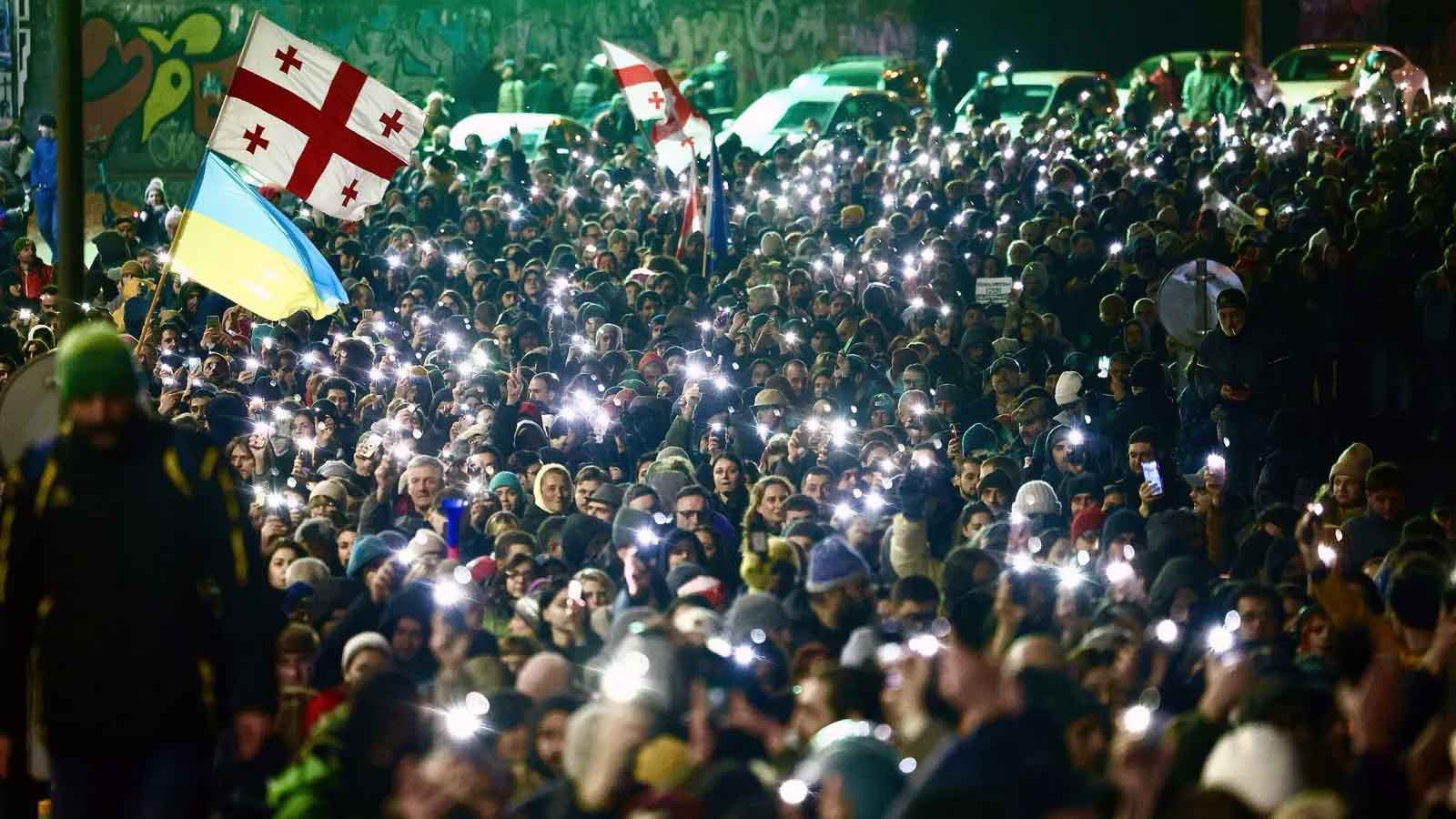Georgia’s political landscape remains tense as anti-government protests reached their 111th day on Tuesday, March 18, 2025. Demonstrators once again blocked Rustaveli Avenue in Tbilisi, the main thoroughfare, reiterating their demands for new elections and the immediate release of individuals detained during previous rallies. Simultaneously, significant developments unfolded in the legal proceedings against activists and journalists, further fueling the ongoing unrest.
Persistent Protests and Blocked Roads in Tbilisi
For over three months, protesters in Georgia have been steadfast in their opposition to the current government. On March 18th, demonstrators gathered in front of the parliament building, effectively blocking Rustaveli Avenue, a central artery of the capital. Their core demands continue to be the organization of new parliamentary elections and the unconditional release of those arrested during earlier demonstrations. Adding to the day’s protest activity, another group gathered near the public broadcaster, with plans to march to Parliament later in the evening to join the main demonstration, showcasing the sustained momentum of the protest movement.
Legal Developments: Journalist’s Trial Postponed, Refugee Status Denied
The legal battles surrounding detained journalist Mzia Amaghlobeli saw a key development as the substantive hearing in her case at Batumi City Court was postponed until March 31st. This delay occurred after her lawyers filed a motion to present new evidence. Amaghlobeli, the director of Batumelebi and Netgazeti, was arrested on January 12th and faces serious charges under Article 353 Prima of the Criminal Code for allegedly assaulting a police officer. Adding to the legal complexities, the defense team also called for the disqualification of Judge Nino Sakhelashvili, arguing a lack of necessary qualifications in criminal law, highlighting the contentious nature of the proceedings. In a separate case at Tbilisi City Court, activist Temur Katamadze‘s appeal for refugee status was rejected. Katamadze, who faces an arrest warrant in Turkey and fears persecution if expelled, has repeatedly been denied Georgian citizenship, further underscoring the challenges faced by activists in the region.
Crackdown on Protest Funders: Accounts Remain Frozen
The financial support networks for the ongoing protests also faced continued scrutiny. Journalist Nanuka Zhorzholiani, who manages Nanuka’s Fund, reported that authorities are considering searching her home. This follows the freezing of accounts belonging to three public funds – Nanuka’s Fund, Prosperity Georgia, and Human Rights House Tbilisi – on March 17th. The Prosecutor’s Office alleges that these funds have spent over 2,000,000 GEL (approximately 721,000 USD) to finance “illegal activities” related to the pro-EU protests. Zhorzholiani stated her intention to keep all information detailing the fund’s activities intact, emphasizing the transparency of their operations despite the official investigation. She also remarked that being targeted based on a complaint filed by individuals she believes are Russian agents is an “honor,” referencing a complaint by leaders of an anti-Western and pro-government public movement.
Nationwide Demonstrations Continue to Demand Change
The protest movement is not confined to Tbilisi alone. On March 18th, demonstrations were planned and took place in multiple cities across Georgia. In Gori, protesters assembled to demand the release of what they consider “political prisoners” and to call for new elections. Rallies also occurred in Akhaltsikhe and Zugdidi, while Telavi, Kutaisi, and Batumi hosted protests in the evening. Even in Chkhorotsku, locals continued their daily protest near the City Hall, demonstrating the widespread and sustained nature of the discontent across the country.
A Nation Divided Amidst Protests and Legal Battles
March 18, 2025, in Georgia was marked by the continuation of widespread anti-government protests, now entering their fourth month. The blockade of Rustaveli Avenue in Tbilisi underscores the protesters’ unwavering resolve. Simultaneously, the postponement of Mzia Amaghlobeli’s trial and the denial of refugee status to Temur Katamadze highlight the ongoing legal challenges faced by those involved in the opposition movement. The scrutiny and freezing of funds supporting the protests further indicate a government response aimed at curbing dissent. As demonstrations persist across the nation, the situation in Georgia remains a focal point of domestic and international attention, with the demand for political change showing no signs of abating.

